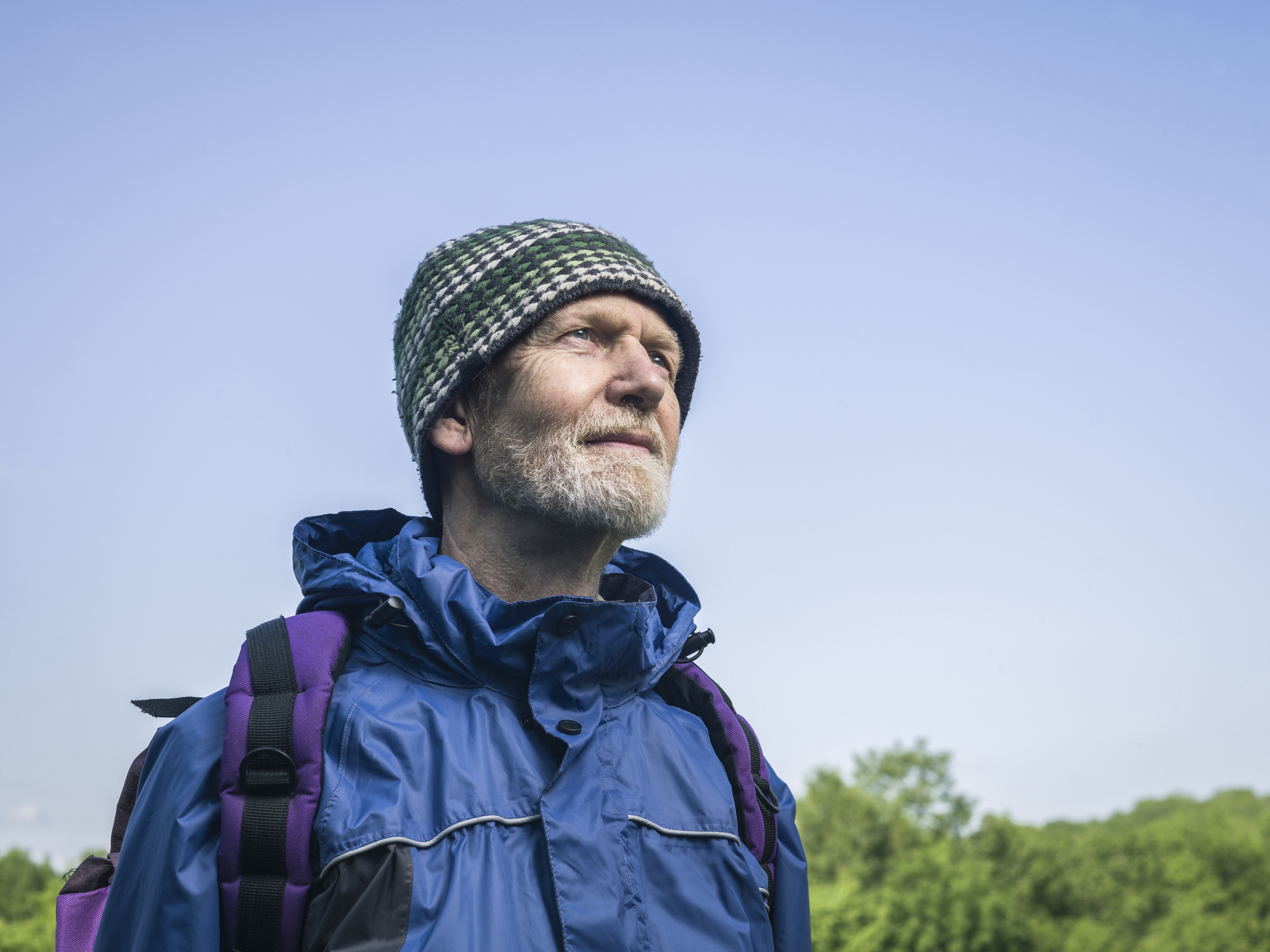4 Steps to a Happy Single Retirement
The number of seniors who are single and childless is growing. This group needs to be purposeful as they think about their health and finances and fostering companionship as they retire.

Profit and prosper with the best of Kiplinger's advice on investing, taxes, retirement, personal finance and much more. Delivered daily. Enter your email in the box and click Sign Me Up.
You are now subscribed
Your newsletter sign-up was successful
Want to add more newsletters?
As her parents grew older, Carol Marak saw how they relied on their three children for care and knew that wouldn’t be an option for her. Without a partner or children, she would have to build a different future for herself.
Marak, 69, of Dallas, decided she had to learn as much as possible about how to age without close relatives to lean on. As one prong of that effort, in 2016 she started the private Facebook group Elder Orphans. Within a month, the site attracted about 1,000 members. It now has close to 10,000, who offer each other advice, resources and sometimes a shoulder to lean on. “It just keeps growing,” says Marak, who also runs a website with tips for the “solo and smart.”
The number of elder orphans—or solo seniors, as many prefer to be called—keeps growing. An AARP Public Policy Institute Report projected that the number of women ages 80 to 84 without biological children will increase from nearly 12% in 2010 to 16% in 2030 and to almost 19% in 2050. According to AARP’s own internal analysis of additional census data, 18% of men and women over 50 never had biological children; it’s 11% for those 75-plus. In addition, the number of Americans who never marry has been steadily growing; in 2018, 35% of those ages 25 to 50 had never married, compared with 9% in 1970.
Of course, people with partners or spouses and children can also find themselves facing retirement alone—through divorce or widowhood, if children move far away or become estranged. But those who have always or long been single and childfree know they have only themselves to rely on. They understand they need to be as organized and practical about their future as possible, both financially and physically, while also creating a lifestyle that builds connection and purpose, says gerontologist Mary Jo Saavedra. Good preparation, she says, can help you avoid “the majority of threats that derail a safe and fulfilling aging experience.”

Get a Checkup
About eight years ago, Marak began preparing for her own fulfilling retirement by signing up for a thorough physical checkup and medical assessment of any potential chronic diseases based on her family medical history. The only concern that cropped up was high cholesterol and being overweight, so she started eating healthier and eventually lost 50 pounds. Ill health can be the start of the fastest decline, and it’s also the most expensive, she says. “If I’m going to age alone, I’d better get in the best physical shape I can.”
The same is true of your finances. Like everyone else, you’ll need to figure out how much retirement savings you have and what you most likely will need to enjoy your retirement years. A certified financial planner can help you determine those numbers. The Garrett Planning Network lists advisers who don’t require any asset or income minimums for their clients. You can also start the process on your own by using the many online retirement calculators that are available for free from banks, investment firms and others.
Beyond that, think about the insurance a single person without dependents needs most. For example, long-term care insurance could be helpful, “and is something I tend to talk about more with clients without spouses or children,” says Jessica Howe, a certified financial planner with Silver Oak Advisory Group in Portland, Ore. But because long-term care insurance becomes more expensive as you get older—or sometimes is impossible to buy after a certain age or if you have a chronic illness—you’ll want to purchase it in your 50s and early 60s. Self-insuring is another option.
Howe also believes, broadly speaking, that disability insurance matters more than life insurance for those without immediate families. “If no one is depending on them, dying isn’t going to leave anyone in the lurch,” she says. “But if they become disabled in the height of their earning years, they will still have to support themselves.”
Life insurance can be important for other reasons: for example, if you want to leave some money for a beloved nephew, friend or charity, or to cover end-of-life expenses. Karen Jennings, 66, who lives in Hampton, Va., says she bought a life insurance policy to pay for her funeral. “I had an aunt who was single,” Jennings says. “Being single, she said, meant you didn’t need a whole lot of life insurance, but enough to bury you.”

Think About Who Would Make Important Decisions for You
Financial and legal directives, such as powers of attorney and health care proxies, are the areas most solo retirees worry about the most. Kate Kaufmann, 68, of Portland, Ore., says she feels a responsibility to have all her affairs in order because “no one has a moral or legal obligation to care for me.”
While that may sound depressing, that’s not how Kaufmann sees it. Divorced four years ago with no children, she has what she calls a chosen family, or a “family of the heart” of close friends whom she can rely on. “With all my siblings having kids of their own, I’m on the fringes of their families,” Kaufmann says. “But in my chosen family, it’s more symbiotic. Over time, we’ve come to rely on each other in profound ways. Being prepared is my act of love for the people involved in my care.” Kaufmann is the author of Do You Have Kids? Life When the Answer Is No.
An important step is deciding who will carry out financial and health care decisions for you if you become incapacitated. “These legal documents—which are critical for anyone, but especially for those who don’t have a family advocating for them—are your voice and allow you to make decisions all the way up to the end,” says Saavedra, who is also an aging-care professional (also known as a geriatric care manager) and author of Elder Care 101.
Howe tells her clients that if a relative or friend is unavailable to serve as a financial power of attorney, a professional fiduciary, such as an accountant, lawyer or trust company official, might be a good option. If you're relying on friends, Howe says, it’s best to divide the tasks between two friends as “you probably shouldn’t have someone managing your assets also write checks for your bills.”
Determining who will speak for you medically can be even trickier. The first and most basic step is to fill out an advance directive outlining what sort of life-sustaining treatments you do or don’t want. The directive should be easily accessible for your doctors and anyone you’ve chosen to be involved in your health care. But there are also supplemental documents, such as a portable medical order or physician orders for life-sustaining treatment (the name varies depending on the state) that provide clearer instructions for first responders in an emergency. Visit polst.org to learn more about these documents.
Everyone also needs a health care proxy or surrogate, although finding someone you trust to carry out your wishes can be tough. Saavedra recommends checking fivewishes.org for examples of how to think about and discuss your future health care choices with a potential health surrogate. She says one important point to consider is “who in your circle is objective enough to do what you want, not what they want.”
Have the conversation with them before drawing up your documents. “The worst thing you can do is just put Aunt Martha as a health care proxy and never talk to her about it,” Saavedra says.
If possible, name a second person as a backup surrogate in case your first choice doesn’t work out or lives too far away when an immediate decision is needed. After her divorce, Kaufmann had to change all her executors, powers of attorney and proxies because she had no siblings or other family nearby. Instead, she turned to friends. “I was really nervous about it and couldn’t quite spit out the question,” she recalls. She was dancing around the topic so much that it took a while for her friends to understand what she wanted. Once they did, they all said yes.
Kaufmann has created what experts say is essential—an active care team for her financial and medical needs. That includes lawyers, doctors and friends with whom she has had detailed conversations and who have all the necessary documentation. “Because we don’t have children, our starting point is more realistic and pragmatic,” she says about retirees like her. “There’s a built-in requirement to be purposeful.”
You also need to have friends who will be honest and willing to speak up even if it’s difficult. Not having children who nag you to get help in to clean the house or to consider giving up the car keys may sometimes be a blessing, Saavedra says, but “you don’t have that cattle prod saying, ‘Isn’t it time to move into a home?’”
Aralyn Hughes, 74, of Austin, Tex., says she has a community of other single women who have agreed to play that reciprocal role. “We know we’re going to have to depend on each other as we get older. I tell them, ‘If my memory starts to go, I want you to tell me and then I’ll decide what to do. You may not agree with me, but it’s in my control.’”

Explore Different Housing Options
Perhaps no question looms larger over single, childless people than where to live. Although it may be more daunting to plan a move on your own, at least you alone get to choose the location and type of accommodation.
There are other options besides traditional retirement communities, says Beth Baker, a writer who has covered aging for many years. She is the author of With a Little Help from Our Friends: Creating Community as We Grow Older.
Again, this is something to do thoughtfully. Too often people think of things like climate when moving rather than what she sees as the key factor, which is a true sense of community. “Just having a house you like isn’t enough to grow old and be well,” Baker says.
Marak, who lived in a Dallas suburb, felt it wasn’t an ideal place to stay as she grew older but didn’t want to move to a 55-plus community. “I wanted to live somewhere where I felt connected the minute I walked out the door and wanted to be able to walk to errands to stay in shape. Also, I didn’t have someone to take me to the store if I needed to go,” she says.
So, in 2017, she found what she wanted and moved into a high-rise condominium in the city. The benefits of the move especially became apparent when the pandemic hit as she would have been far more isolated living in a house on her own. “I don’t feel alone. I have become friendly with the people in the building and have two dear friends who live here,” Marak says. “COVID highlighted how important it is to live like this.”
For her 66th birthday, Kaufmann gave herself the present of putting a deposit on a retirement home; most of the $3,000 deposit is returnable if she decides not to live there. “I see it as my backup plan,” she says.
A growing option is co-housing, where people live in their own apartments (typically consisting of a bedroom and bathroom, though it can vary) but share common areas, such as the dining and living rooms, kitchen and garden. Baker says about 150 co-housing developments, which can be solely for seniors or multi-generational, exist around the country now, with at least 100 more in development. This is different from sharing a house. Think of it more as moving into a condominium with far more shared spaces than just the lobby and gym, and where, typically, expectations and values are spelled out. Most co-housing apartments go for the market rate, Baker says, but some are built as affordable housing. The website cohousing.org offers more information, including how you can find co-housing developments around the country.
Another option is sharing a house. That’s the plan for Hughes, a former real estate broker in Austin, Tex., who still dabbles in the business. When a client of hers bought a lot, she asked Hughes her thoughts on what to do with it, and Hughes told her, “You should build a house where people can be a community. Where they can have independence and privacy and shared space.” Hughes plans to move into the dwelling her client built, living in the downstairs bedroom, where she will serve as property manager. The two large upstairs bedrooms, each with their own bathroom, will most likely be for younger people, she says. The goal is to enjoy a more environmentally and financially cost-efficient lifestyle that offers both a family setting and space where you can be alone, she says.
If you want to stay in your home and just have someone to help with errands or give you a lift to the store, the Village to Village Network might be the answer. The idea was first put into practice in Boston about 20 years ago by people who didn’t want to move to an institutional setting but needed help, says the network’s executive director Barbara Sullivan. You must be a network member to receive assistance.
Beyond that, the arrangements vary. Some communities or villages have paid staff to organize the network and some consist entirely of volunteers. Some networks charge membership dues and some don’t.
Almost all are nonprofit. “When a community starts a village, they do a needs assessment, and it takes a core group of activists to decide what is needed,” Sullivan says. The organization’s website (vtvnetwork.org) offers a map of existing networks, a toolkit to help start villages, and other resources. When considering where to move, people sometimes look for neighborhoods that already have such a network, she adds.
The volunteers are all ages, and Sullivan says it’s not unusual for college students to help out, especially with technology, such as downloading photos or teaching a network member to use social media. One thing the villages are not designed for is medical assistance, Sullivan stresses.
There are now 280 villages around the country, with 80 more in development. Sullivan says COVID spurred “a robust number of developing villages with people really scared about nursing homes.” One village in California was even able to negotiate getting vaccines for its network, she says.

Discover What You Find Fulfilling
Retirement means not just planning for the future but also enjoying it when it finally arrives. If anyone takes that to heart, it’s Hughes. When she sold her business in 2008, she saw it is an opportunity, telling herself, “I’ve saved my money. I’m going to do what I’ve always wanted.”
Her bucket list was long. She signed up to learn dancing and drumming. She edited an anthology, Kid Me Not (Violet Crown Publishing, $12), about the first generation of women who came of age after birth control became widely available and who chose not to have children. She directed a one-woman show and became the subject of a documentary called “Love in the Sixties.” She’s now writing a memoir.
Not everyone finds fulfillment in retirement on such a grand scale as Hughes. Smaller meaningful ways are just as good. Jessie Taylor, 66, of Phoenix, retired a few years ago from his job as a commercial property manager, is divorced and almost never sees his children. He is on his own and unhappy about it. But he recently adopted a black and white kitten he named Spirit to keep him company, and Spirit is, well, lifting his spirits. “The kitten is helping,” Taylor says. “I figured he needed to be rescued and I needed to be rescued.”
Finding companionship and purpose in life are two of the most important ingredients of a rewarding older age, almost as essential as having solid finances and medical care, Saavedra says. Forging those connections doesn’t come naturally to many people, but for single, childless retirees, it’s required learning.
Without the vibrancy that children and grandchildren can bring, “it’s easy for your story to be about loss,” Saavedra says. There is physical deterioration or friends who become ill or die. “Life can become doctor’s appointments and funerals,” she says. “We want to change that story about loss and make it be about possibility.”
Profit and prosper with the best of Kiplinger's advice on investing, taxes, retirement, personal finance and much more. Delivered daily. Enter your email in the box and click Sign Me Up.
Alina Tugend is a long-time journalist who has worked in Southern California, Rhode Island, Washington, D.C., London and New York. From 2005 to 2015, she wrote the biweekly Shortcuts column for The New York Times business section, which received the Best in Business Award for personal finance by the Society of American Business Editors and Writers. Her work has appeared in numerous publications, including The Times, The Atlantic, O, the Oprah Magazine, Family Circle and Inc. magazine. In 2011, Riverhead published Tugend's first book, Better by Mistake: The Unexpected Benefits of Being Wrong.
-
 A Top Vanguard ETF Pick Outperforms on International Strength
A Top Vanguard ETF Pick Outperforms on International StrengthA weakening dollar and lower interest rates lifted international stocks, which was good news for one of our favorite exchange-traded funds.
-
 Is There Such a Thing As a Safe Stock? 17 Safe-Enough Ideas
Is There Such a Thing As a Safe Stock? 17 Safe-Enough IdeasNo stock is completely safe, but we can make educated guesses about which ones are likely to provide smooth sailing.
-
 We're 64 with $4.3 million and can't agree on when to retire.
We're 64 with $4.3 million and can't agree on when to retire.I want to retire now and pay for health insurance until we get Medicare. My wife says we should work 10 more months. Who's right?
-
 457 Plan Contribution Limits for 2026
457 Plan Contribution Limits for 2026Retirement plans There are higher 457 plan contribution limits in 2026. That's good news for state and local government employees.
-
 Medicare Basics: 12 Things You Need to Know
Medicare Basics: 12 Things You Need to KnowMedicare There's Medicare Part A, Part B, Part D, Medigap plans, Medicare Advantage plans and so on. We sort out the confusion about signing up for Medicare — and much more.
-
 The Seven Worst Assets to Leave Your Kids or Grandkids
The Seven Worst Assets to Leave Your Kids or Grandkidsinheritance Leaving these assets to your loved ones may be more trouble than it’s worth. Here's how to avoid adding to their grief after you're gone.
-
 SEP IRA Contribution Limits for 2026
SEP IRA Contribution Limits for 2026SEP IRA A good option for small business owners, SEP IRAs allow individual annual contributions of as much as $70,000 in 2025, and up to $72,000 in 2026.
-
 Roth IRA Contribution Limits for 2026
Roth IRA Contribution Limits for 2026Roth IRAs Roth IRAs allow you to save for retirement with after-tax dollars while you're working, and then withdraw those contributions and earnings tax-free when you retire. Here's a look at 2026 limits and income-based phaseouts.
-
 SIMPLE IRA Contribution Limits for 2026
SIMPLE IRA Contribution Limits for 2026simple IRA For 2026, the SIMPLE IRA contribution limit rises to $17,000, with a $4,000 catch-up for those 50 and over, totaling $21,000.
-
 457 Contribution Limits for 2024
457 Contribution Limits for 2024retirement plans State and local government workers can contribute more to their 457 plans in 2024 than in 2023.
-
 Roth 401(k) Contribution Limits for 2026
Roth 401(k) Contribution Limits for 2026retirement plans The Roth 401(k) contribution limit for 2026 has increased, and workers who are 50 and older can save even more.
